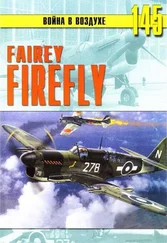On the beery wall tiles Firefly’s shadow had shrunk as he distanced himself from the rocking chair. It looked like a magnet had drawn it to the edge of the mosaic and then deformed and compressed it into a squat fleeing sphere, bluish shot through with blood-orange streaks, vitreous.
The coachman’s, on the contrary, loomed larger when he got up with a glass of anisette in his hand, a crosshatched silhouette in the center of the wall superimposed on the case of beer where a skeleton, wearing a crown of orange blossoms and a veil undulating in the breeze, played the harp.
Both shadows abruptly dissolved when the rumba dancer sent the bar’s lights into a violent blackout.
Filled with the inextinguishable energy that comes from realizing you have been played for a fool, Firefly continued running down the street. He had no idea why the image he could not shake, even for an instant, was not that of the ignoble auctioneer Munificence offering Ada’s innocent body to the highest bidder, rather the opposite, that of Munificence the generous benefactor who had taken him in, the charity-house mentor faking purity, putting on airs, lying . “With all the discipline and order she insisted on in the charity house,” he said to himself, “there was no way Munificence could be unaware of this open leak, this depravity.”
He was fleeing not the driver’s convulsive chortles or his licorice stench but that lethal, insufferable image gnawing at him from the inside, emptying his eyes.
He crossed a square, where the cobblestones were drenched as if there had been a sudden shower, then an avenue lined with royal palms, their wilted crowns bowed by a northerly gust. He passed under the elevated trestle made of black wood where the trains from the provinces came in, and he sensed the sharp odor of cane syrup and that red-streak fungus that sours the stalks.
Going over a drawbridge, he heard his own footsteps echoing on the creaky planks as if they belonged to somebody else.
He reached the docks.
What came to mind was an etching that adorned the office of one of the notaries, amid the clammy file folders: a bird’s-eye view of the port of Havana. Two contorted angels in the upper corners held a ribbon with a name and a date waving in the island’s strong steady breeze.
The wind leaned on the masts, tried to carry off the twisted sails. In the anthill of the docks reigned a restlessness, the sleepwalking chaos that precedes any major disembarkation.
Hordes of rodents, relying on some infallible and gregarious intuition more accurate than all telegraphs put together, had invaded the port’s every pipe and sewer the night before, where they awaited the scent of dry grain to launch their assault.
Dropping anchor was a Spanish brigantine from the African coast with a cargo of pure unmixed blacks, who would deliver, according to the prayer in that morning’s Diario de la Marina , “with the strength of their arms, linked to the fabulous grinding machines of the mills, a decisive boost to the nascent sugar industry.”
As the ship rubbed up against the pier, the air was inundated with the rank odor of rot pouring from the hold: a stench of putrid sweat, foul drinking water, rancid urine, spoiled milk, open wounds, and brine.
In between the captain’s commands shouted in a thick and despotic Castilian could be heard the creak of the hawsers, the exhilarated cries and euphoric swearing of the sailors on board, and, farther off, the moans of the slaves, the wails, the nasal voices now in exile scolding the gods of the earth for having forsaken them, for leaving them and their families and their animals defenseless against the profiteering gangs of pale-faced traffickers.
Everything was agitation amidships, hither-thither, hurry-hurry. The crewmen, half naked, desiccated, and feverish, ran to the bridge and contemplated the city jubilantly; they pointed at the yellowed and twisted features of the palatial buildings as if these were mirages from their deliria during the passage, or as if they recognized them and were confirming the accuracy of the engravings they had been shown in the mother country to beguile them with the pageantry of America. Then they turned the other way, toward the pink towers of the churches and the light green crowns of the royal palms that swayed like cool sprouting grass the length of the port’s boulevard. They ran singing and whistling back to their cabins and tossed bucketfuls of water at one another, swabbing their pale sopping hides now that they no longer had to go even without drinking to make the water last.
Naked but for a cassock with gold braid and buttons that poorly dissembled his well-endowed nether parts, a blond sailor — his long hair agleam like a sulfur flare in the island sun — ran back and forth to the gangway where he piled up his gear: a sack of nougats from Alicante and Jijona whose lumpy riches, the whites and browns of almonds and green walnuts and ground-bee honey, stuck out through the mendings in the fabric; a jug of red wine that projected a trembling amethyst gleam onto the wood of the deck when its owner placed and steadied it as if it were the fragile beaker of an alchemist; a rustic musical instrument, like a violin made of unsanded wood, with an outsized homemade bow; and, finally, a fuming minuscule simian that immediately clambered to the top of the pile and glared every which way while emitting the vainglorious growl of a vigilant proprietor, threatening and rapacious.
Like wildfire in a dry cane field, news of the arrival spread the length of the archways of the port district, where, stacked in a sticky dream of pan sugar and rum, evicted from every tenement, there lived whores during Lent, scarred lepers, vendors of lottery tickets awaiting the jackpot, Soviet advisers, Indians selling sticks of sugarcane and mammees and jerked beef in clay crockery, and a few blacks recently freed, singing country songs and sniffing snuff.
Industrious if still hardly white-skinned landowners in search of grinding hands for their future plantations began crowding the docks, along with belligerent sugar-mill managers and eager traffickers. In the uproar, slavers of all tints mixed in with the layabouts and natterers who always hung around the port hoping for a chance to get in on the leftovers of some big scam or the trickle-down from some contraband trade protected by the governor.
In the midst of this tumult, which ought to have provided some distraction but which in reality perturbed him even more, Firefly’s thoughts returned — the way the threat of dizziness returns or the weedy reek of vomit long after it has disappeared from view — to the image of Ada naked, to the meanness and baseness of the one he had trusted, Munificence, to her unforeseeable wretchedness and duplicity.
Pervaded by that dizzying stench, he understood how he had been manipulated, how he had been used for years and years, nothing but easy prey for the ringleaders, for their poisonous games, their meticulous effort at pretense.
He did not know which he desired more, to be one of the slaves covered in boils and chains about to climb out of the hold and at least make it clear to himself that he was not the owner of his body or his destiny, or on the contrary to walk along the docks until he reached the reefs, where the roaring waves break in furrows, and there give himself over entirely to the sea, to no longer being.
The return of that revolting vision of Ada, which by then he felt obliged to attribute to reality and not, as ought to have been the case, to the clutter of sullied images that cloud a hangover, made the human species seem like irredeemable debris, rubbish. That was it: the dregs, the remains of an ideal creature fashioned in the beginning by some deluded god, and in the end reduced to this prattling pantomime, to this essential filth.
Читать дальше












